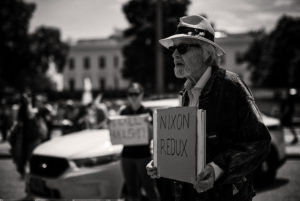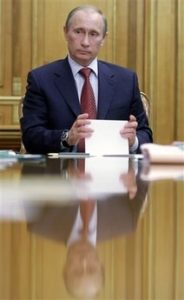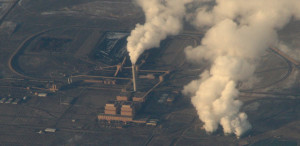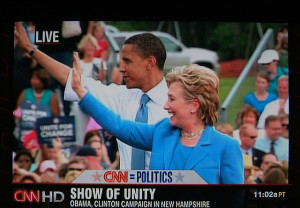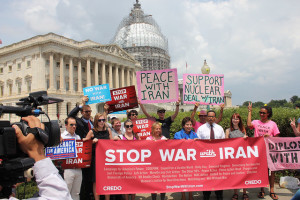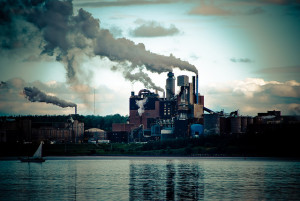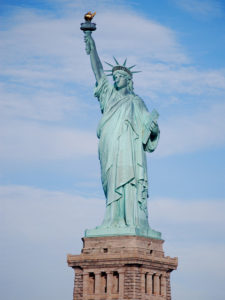
The Statue of Liberty, gateway for many American immigrants.
On Wednesday, Donald Trump‘s senior policy advisor Stephen Miller had a shocking exchange with a reporter in the White House Press Room, regarding Trump’s immigration policy.
Miller spoke about a Republican proposal co-authored by Trump White House officials which would reduce legal immigration into the United States by about half in the next 10 years, and favor English-speaking immigrants and skilled workers. CNN Senior White House Correspondent Jim Acosta then asked about the change this would mean for America. Acosta quoted “The New Colossus,” the poem which adorns the Statue of Liberty, asking:
The Statue of Liberty says, “give me your tired, your poor, your huddled masses yearning to breathe free.” It doesn’t say anything about speaking English or being able to be a computer programmer. Aren’t you trying to change what it means to be an immigrant coming into this country if you’re telling them, you have to speak English? Can’t people learn how to speak English when they get here?
Miller responded by saying “the poem that you’re referring to was added later, is not actually part of the original Statue of Liberty.”

